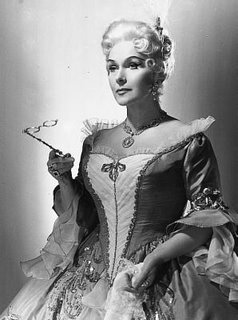
Capriccio Four Last Songs - Szell Four Last Songs - Ackermann Rosenkavalier |
He was largely responsible for turning her into a singer that cared (overly) about the accentuation of every note and phrase… the very quality that had her so admired or rejected as draining every piece of music she sang of its naturalness. Nor does everyone respond well to the grain in her voice – a little grain of sand that splits it into two parallel strands. Or, were you to compare voices to a knife’s edge, Schwarzkopf’s is one of those knives that have a hollow edge. To some ears, the result is an ever present, very slight sharpness, although there is none, measurably. While it is true that she could make Fischer-Dieskau seem a spontaneous singer, there are undoubted and near universally admired moments of glory in her singing – all well captured on disc.
Anthony Tommasini, Elisabeth Schwarzkopf, Opera Singer, Dies at 90 (New York Times, August 4) Adam Bernstein, Renowned Coloratura [sic!] Soprano Elisabeth Schwarzkopf, 90 (Washington Post, August 4) Tim Page, The Plaintive Last Song of Elisabeth Schwarzkopf (Washington Post, August 4) Dame Elisabeth Schwarzkopf (London Times, August 3) |
I can't claim to have any particular interest in her artistry as such - but whenever it lent itself to a grand results, it was admirable. Beyond the Strauss, there is also lovely Mozart and intriguing Wolf - explore: somehow there is never a better time than an artist's death to do so.
No comments:
Post a Comment